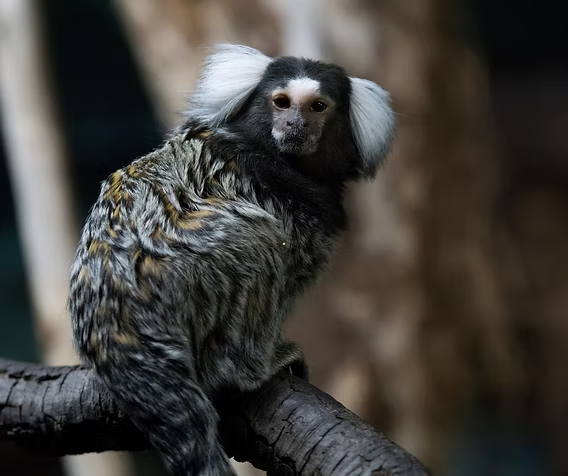Marmoset Monkey Diet, Marmoset monkeys are small, intelligent primates native to South America, and their dietary needs are as unique as their personalities. Understanding the marmoset monkey diet is crucial for anyone who wants to keep these fascinating creatures healthy, whether in captivity or conservation settings.
Natural Diet in the Wild
In the wild, the marmoset monkey diet is highly diverse. These monkeys are omnivores, meaning they consume a mix of animal and plant-based foods. A large portion of their nutrition comes from:
- Tree sap and gum: Marmosets are known as “gummivores” due to their ability to gnaw into tree bark with their specialized teeth to access sap, which is rich in carbohydrates and calcium.
- Insects: Crickets, grasshoppers, and caterpillars form a protein-rich part of their diet.
- Fruits and vegetables: They eat various seasonal fruits, seeds, and flowers.
- Small animals: Occasionally, they may consume lizards or bird eggs for additional protein.
Diet in Captivity
Replicating the marmoset monkey diet in captivity is essential to ensure their physical and mental well-being. A healthy captive diet should include:
- Commercial primate food: High-quality pellets formulated for small primates help maintain a balanced intake of essential nutrients.
- Fresh fruits and vegetables: Apples, bananas, grapes, carrots, and leafy greens should be part of their daily meals. However, sugary fruits should be given in moderation.
- Insects and protein sources: Mealworms, boiled eggs, or specially formulated protein supplements provide necessary amino acids.
- Gum-based supplements: Since tree sap is not easily available, gum arabic or other safe substitutes can be used to mimic their natural gummivore diet.
Nutritional Considerations
Marmosets have a high metabolism and require frequent feeding throughout the day. Calcium deficiency is common among pet marmosets, so calcium-rich foods and vitamin D3 supplements are often necessary. Avoid giving them human food, dairy products, or high-fat items, as these can lead to health issues like obesity, diabetes, or metabolic bone disease.
Conclusion
The marmoset monkey diet must be carefully planned to ensure these tiny primates thrive in any environment. Whether they are swinging through the rainforests of Brazil or living in a specially designed enclosure, proper nutrition is the key to their longevity and happiness. Always consult with an exotic animal veterinarian when planning a diet for a marmoset to ensure all nutritional needs are met.
You Might Also Like These:


